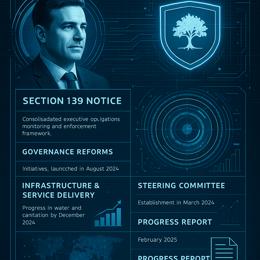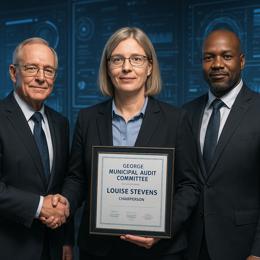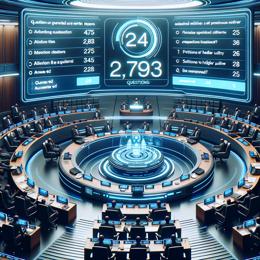Image created by AI
Scandals at the Helm: Controversy and Calls for Transparency at Inseta’s AGM
At the recently concluded Annual General Meeting (AGM) of the Insurance Sector Education and Training Authority (Inseta), allegations of corruption, maladministration, and a lack of transparency have surfaced, spearheaded by the Organisation Undoing Tax Abuse (OUTA). Amidst ongoing legal battles and public disputes, the events and proceedings of the AGM have attracted widespread criticism and calls for an overhaul of the management practices at Inseta.
Wayne Duvenage, CEO of OUTA, has been at the forefront of challenging what he describes as significant damage to the Graduate Institute of Financial Sciences (GIFS) by Inseta. GIFS, a once highly respected training provider, was de-accredited under controversial circumstances. Despite a court order reinstating GIFS earlier this year, Inseta's management has reportedly failed to take action, prompting serious concerns about the integrity of the organization’s operations.
Of further concern is the apparent reluctance by Inseta to engage openly with stakeholders. At the AGM held at the Sandton Convention Centre in Johannesburg, Duvenage intended to seek clarity on several critical issues from the annual report, including potential costly liabilities from business damage claims brought by GIFS. However, the attendees were informed that there would be no opportunity to pose questions directly to Inseta’s management or board during the meeting. A system requiring written submissions via a QR code was established instead, a move that Duvenage criticizes as restrictive and non-transparent.
OUTA’s continuous efforts to obtain essential information from Inseta have been met with evasion and obfuscation, as stated by Duvenage. This lack of cooperation came to a head when despite receiving a notice that the event was oversubscribed, Duvenage found the venue conspicuously undersubscribed upon his arrival at the AGM.
Classification as misleading by OUTA were statements published by Inseta on their website claiming ongoing cooperation with the non-profit watchdog. These claims are directly contradicted by OUTA's experiences and the unresolved issues that they have highlighted. Furthermore, the long-delayed independent forensic investigation into maladministration and corruption, which was resolved to commence in February 2024, has yet to begin, raising suspicions about the willingness of Inseta's management to address potentially deep-seated issues within the organization.
The resolution of the meeting to allow an Inseta board member to follow up with OUTA could possibly open channels for the necessary dialogue. However, the past conduct of Inseta’s management has left many, including OUTA’s team and concerned stakeholders, skeptical about the promise of transparency and accountability.
Despite facing accusations of orchestrating a smear campaign, OUTA has vocally denied such claims, emphasizing its dependency on factual reporting and direct communication to shape public perception and action.
In conclusion, as the fallout from the AGM continues to develop, the spotlight remains firmly on Inseta. Stakeholders are calling for decisive action and a commitment to transparent governance to restore confidence in one of South Africa’s key educational authorities.










